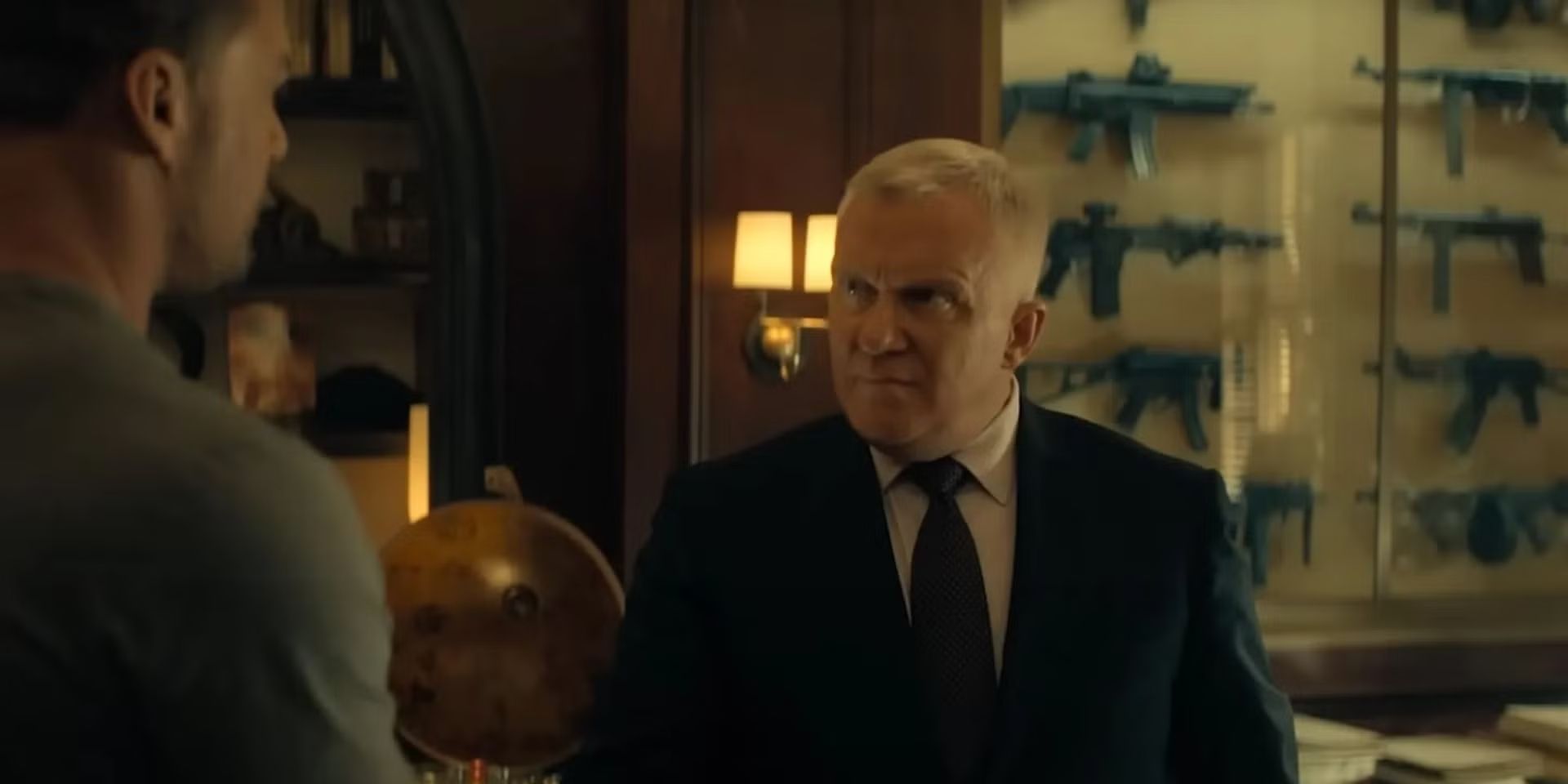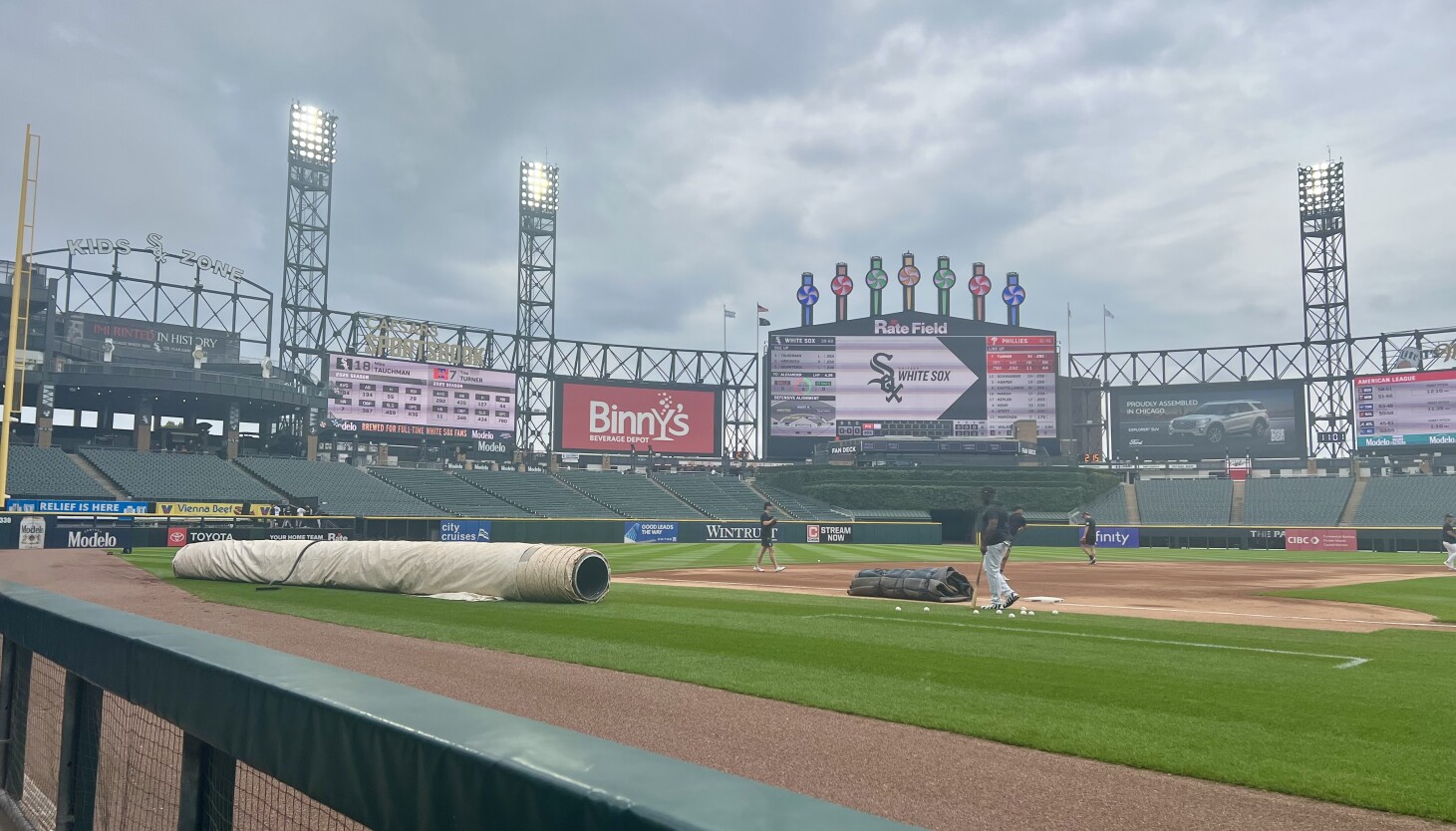Reacher Season 3 introduces Zachary Beck, played by fan-favorite actor Anthony Michael Hall. An arms dealer who hires Reacher after the musclebound hero protects his son, Beck is revealed to be working for a far more sinister figure from Reacher’s past, operating in fear for his and his son’s lives. For Hall, the opportunity to join Reacher was an offer that synced up his personal life — the actor having recently become a father himself.
In an interview with CBR, Hall talks about how his work on Reacher was positively influenced by his own life experiences and details the process of finding Zachary Beck. He also reflects on being part of the main cast of Saturday Night Live as the iconic variety show celebrates its 50th anniversary. Plus, he reveals the life lessons he learned from working with iconic director John Hughes.
CBR: When you were preparing for the role of Zachary Beck in Reacher, did you read Lee Child’s novel Persuader, or did you not want that to color your performance?
Anthony Michael Hall: I was not aware of Lee Child’s work; I want to be forthright. I did get the book right away. It was actually given to me by my neighbor… I worked with it, read it and brought it to set all the time and would refer to it a lot. It gave me a great sense of Lee’s writing capability. He’s written 29 of these books, and it reminded me of Stephen King. He’s such a great writer that there’s an ease in which you can read his books. When you’re in Reacher’s head, and he’s detailing all the things that he sees, he jumps from third-person to that in the books. It was a great source for me.
The omission of Zachary’s wife was important. I think in service of time, they had to omit that character. But there were large portions of the book that they were very true to. They were almost excerpted from the book to become big sequences and a major part of the episodes. I thought [Reacher showrunner] Nick Santora was very true to the book. He’s a great guy who offered me this opportunity, so I want to tip my hat to Nick. In discussing the role with him, there is an A storyline and a B storyline. The A storyline is how Zachary Beck is in deep cover mode. He’s got this import-export gig that’s a front, a cover for what’s really going on. In reality, this guy is a criminal living like the Great Gatsby.
What slowly gets revealed is that he’s not the capo or head boss. He’s an underboss at best. He’s struggling to stay alive. He knows that there’s a big threat at hand and working with a lot of guys. The way that Quinn is introduced — when he steps out of the shadows — you realize that he’s really working for Quinn. In tandem, they are operating and arms dealing with the Russians. There is a lot there to play with.
For inspiration, my gut instinct was to look back to James Cagney, just for his presence. It’s a different era of filmmaking, literally almost 100 years ago, but I’ve always loved Cagney for his ballsiness and that he started out as a showman. I looked to Cagney for inspiration and took it from there. I kept the book with me, but I had a lot of room to play with in the context of this story.
The B storyline, not to relegate it to that because it’s part of the A storyline and how the season starts, is that [Beck’s son] Richard is introduced. My son crosses paths with Reacher at the beginning of the season, and in the first episode, he helps save the day and save him. That leads to his introduction to me… I enlist him for support, but a friendship develops between him and my son. Over the course of eight episodes, we see what’s at play with Beck and what’s really going on.
The exploration of that father-son relationship is very powerful. I happened to grow up without my biological father. I didn’t meet him until I was 22 years old. I’ve been Richard. I had the good fortune of having a father from when my mother remarried when I was a kid. I was an only child, but I had the support and love of a father. Exploring that father-son dynamic was very powerful because… you have a guy that’s ruthless, doing whatever he can to stay alive, living this life that’s really an artifice. All those walls start to come down throughout the season, but the stuff as a father is really powerful in a way.
As fate would have it, I’ve been married for five years now, but with my wife for over ten. We got married in 2023, and I have a 20-month-old son at 56, which is a trip in itself! As faith would have it — and I am a man of faith — I was given all the inspiration I needed. My life was given new meaning and purpose by becoming a husband and a father to my son. That gave new meaning to exploring this work. Johnny Berchtold [who plays Zachary] is a great guy, and I really enjoyed working with him.
Years ago, I was given a great note on acting by a teacher of mine, Bob McAndrew. Bob told me that any great feeling that you have towards any actor that you’re working with, give it to your character. I’ve done that many times in my career. You hold what you’re feeling and meet that person on film. In this case, I had such a rapport with Johnny. He plays younger, but he’s older than he looks and also recently married. I took a liking to him a lot, really enjoyed working with him and that made it so much easier. But I also had new meaning and purpose as a father myself. It gave meaning to all of this, and it was a really fun way to explore that.
There is the sense that, despite having so much seemingly figured out, Beck is also immensely frustrated by the realities of his position. How did you capture that dichotomy?
Related
Reacher Season 3, Episode 6 Review: An Explosive Story In More Ways Than One
The tension ratchets up considerably as Reacher tries to maintain his cover and his relationship with his allies continues to face strain.
It goes back to my conversations with Nick Santora in the first days of shooting, because he and I would be in communication a lot. That gave me all the playing field I needed, because you want to find light in the dark and dark in the light, since this guy is a dark character. My light is the pressure that he’s feeling under the watch of Quinn, who steps out of the shadows later in the season. Brian Tee [who plays Quinn] is a great guy, with a great performance. He’s such a nice guy and I loved working with him.
I had all that I needed. [Beck] can operate like a boss, when in fact he’s not. He can have that desire and drive, and he does, but he’s also part of a network. No man is an island. He had all those colors to play with, which was wonderful for me to play with as an actor. The heart and more humanizing aspects of him are linked to his relationship with his son. These are big concepts that we struggle with through life — forgiveness, self-forgiveness, redemption. Those ideas, for me, were very powerful. Nick did a beautiful job writing them, and the other writers did too, because there was so much room there.
Zachary loves his son, but he’s really tough on him. He wants a relationship, but he can’t forgive himself. Therefore, he doesn’t know how to embrace his son — literally and figuratively. Reacher is a bridge to that. You have this guy who is under the pressures of operating in that criminal network. You also have a guy who’s struggling to forgive himself. That is embodied in the relationship and hopefully comes to life in his relationship with Richard. Johnny is a great guy and great to work with, so I had all that playing field.
That affects my work and I want it to, because I want to give them a lot of options editing-wise. Sometimes, I was a little harder, meaner, more suspect with Reacher. Sometimes, there was something in the eyes that told him I needed him to help me. There’s also a threat aspect, that he may be becoming a better friend to [Beck’s] son than Zachary had been. That was all really rich territory to play in. It allowed me, as an actor, to do my best, deliver different options and keep the audience guessing.
A lot of actors can be known for one thing, but I never wanted to be one of those types of actors. I’ve always been less impressed with celebrity, or any of that shit. I just wanted to do the work. Maybe I’ve made it harder on myself, but that’s all good. I’m at peace with it all. Truthfully, it was great for me because I had all of this room to play with.
He’s a bad guy, but he loves his son. He looks at Reacher like an object to possess, as a guy working for him as part of his team. Ultimately, I think Reacher pushes him to make some better decisions that hopefully lead to at least the beginning of a path towards self-forgiveness, which allows him to redeem himself with his son. All of that stuff was really fun to put into the process.
With that in mind, how would you describe working with Reacher star Alan Ritchson?
I couldn’t help but think back to when I was shooting The Dead Zone — when I was starring in my own series. That helped me contextualize a lot of things. Alan is a young guy, relatively speaking, but he’s in his early 40s now and he’s been chipping away at it for a long time. I saw a guy that’s very hungry, but also who is taking it very seriously. I can respect that. I see a guy that also wants to become a filmmaker. He became an executive producer on the show and I did the same thing on The Dead Zone. I think I had a lot of connective points and ways to understand him.
He’s a very nice guy, a family guy. He takes his work seriously. He’s very much interested and connected to [Reacher director] Sam Hill and the other executive producers, because he’s very invested and involved in every aspect of this, whether it’s camera movements or notes and ideas he might have for the other actors. That comes with the responsibility of being number one on the call sheet, but also as an executive producer. I have a lot of respect for him.
He took the opportunity very seriously, and he’s doing his very best to deliver and fulfill that. As a business guy, he’s a very smart and sharp guy; I think that’s serving him well as well. He’s setting up a lot of projects. He’s doing a lot of great work. I have a lot of respect for him and think he’s a good man.
In looking at the trajectory of your career, a lot of your recent work has been in high-octane, action-heavy projects like Trigger Warning, Air Force One Down and Bosch: Legacy. How would you describe playing in this specific genre?
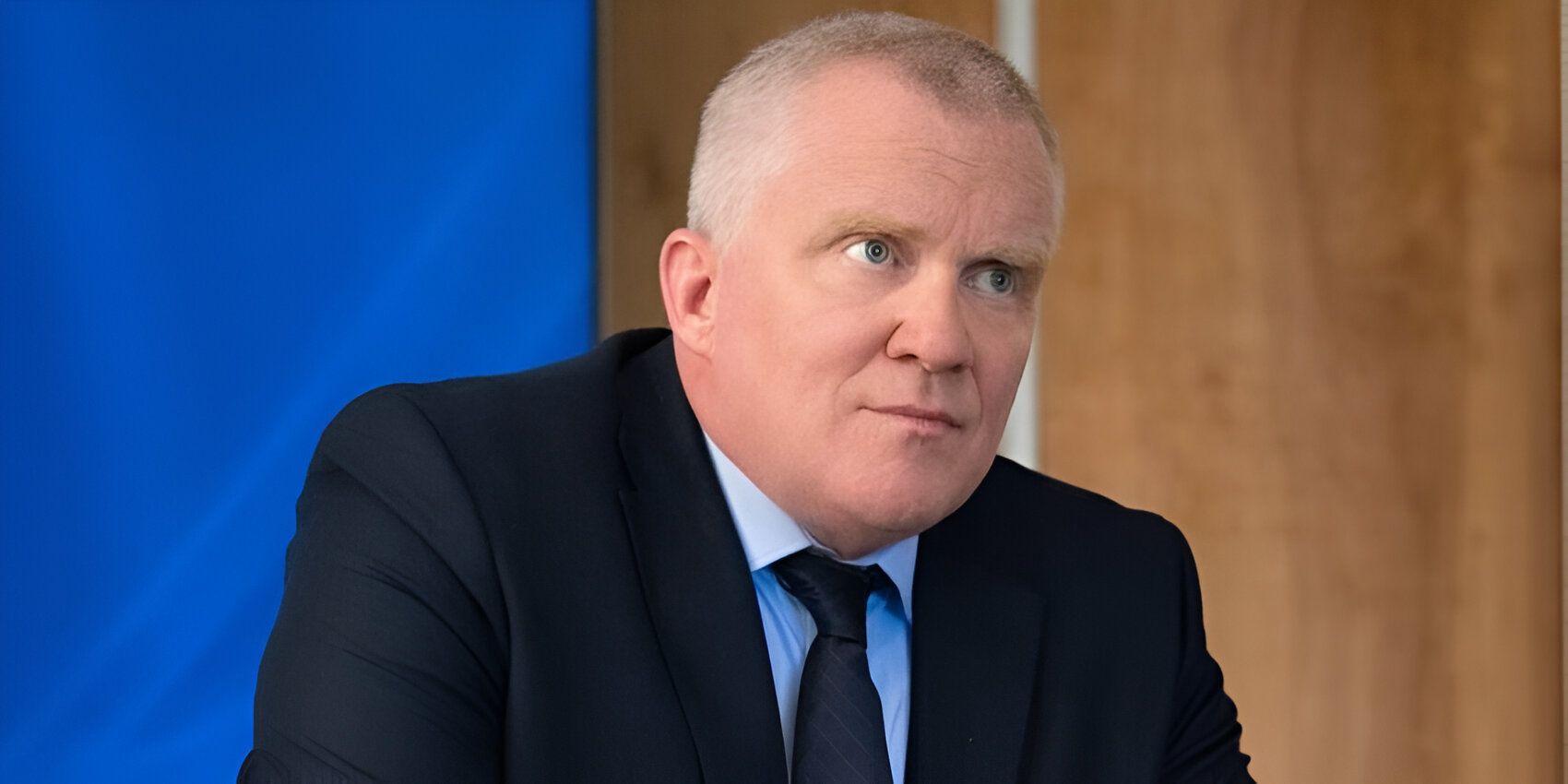
Related
‘I Was Hoping So’: Why Anthony Michael Hall Isn’t Returning for Bosch: Legacy Season 3
Anthony Michael Hall shared his thoughts about his exit from Bosch: Legacy and his character’s incomplete arc in Season 2.
I didn’t plan it, but I’m glad I was ready for it. In terms of my own choices and future, I do have plans, because I have a production company called Manhattan Films that has released a couple of projects. One is called Roswell Delirium, which is now streaming on Apple, which I’m very proud of. In this process, I’ve aligned myself with writer-directors. I think these things have chosen me. When I did Trigger Warning, that came from a wonderful session that I had with the director, Mouly Surya. That was her vision and her film, and she chose me. I was very blessed and fortunate to do that.
It’s such a gift to not only get a job, but the sense of adventure that always comes with it. I often put it in my contract to have my own car, because I don’t want to be picked up. I always just drive myself to set in the morning. On that project specifically, I was really excited to work with Thunder Road Films, who did all the John Wick films. I was working with Netflix, and had the good fortune and blessing of working with them. I did a film called War Machine with Brad Pitt, who’s a great guy, and I learned a lot in that process from playing General Pulver in that film.
I was just stoked and really happy to be involved and making a project, going off on that journey. I liken it to being an athlete. You can have the best numbers and be a star player, but all of a sudden you get dealt to another team. You have to stay humble in this business, or it will humble you. I’ve learned that throughout the years. Going back to the ’80s, I’ve played kids, and then I’ve played teachers, dads, villains and all kinds of things.
I just feel grateful to God that I’ve had a career and that it’s lasted this long, for 49 years, which is just a season shy of SNL. To that, I just give God the credit. I don’t take credit for that. I just show up. Two lines about acting come from Spencer Tracy, who said «Hit the mark, look them in the eye and tell the truth.» The other one was, «If you want to be an actor, don’t get caught doing it.» [Laughs.]
This year does mark Saturday Night Live‘s 50th anniversary, and you got to be in the show’s the main cast when it was finding itself again. How do you feel about being a part of the SNL legacy?
It’s so crazy! I had just come off the John Hughes films, so I was offered to be a part of that show. Going back ten years in 1975, I was a little kid being raised by a single mom. Growing up, I was listening to Van Halen, reading Cream magazine and Rolling Stone, listening to George Carlin and Richard Pryor albums. I always loved stand-up comedy. The fact that I was chosen by Lorne Michaels, who was the executive producer at the time, just was like a dream come true.
I said «yes» and then, as detailed in the Peacock interview [in SNL50: Beyond Saturday Night], I was nervous as hell. I couldn’t believe it. I was like, «I committed to being a part of this?! This is incredible!» I did the show and — I think the documentary handles this very nicely — it was a difficult time. It was a transition period where the show could’ve been canceled.
What happened is, I was contacted by Laila [Nabulski] to do [that] interview, who also contacted Robert Downey, Jr. and Susan Downey… For 40 years, I had beaten myself up about this and my involvement with it, because when I did the show, I never even watched it. It was an interesting turning point for me because, by reconnecting with Laila, [Robert and I] were friends then, but have since reconnected. Morgan Neville’s company, who produced the documentary, sent all the episodes to me. I had never watched them as a kid. I never look back.
In the process of doing that, it was almost like It’s a Wonderful Life — like having a George Bailey life review without Clarence being there. It freed up so much and was very healing in a way. I had never watched it, beat myself up over it because the critics were so harsh on it, but I was there and a part of these 50 seasons. I’m really excited! I’m about to leave with my family for New York to do more press for Reacher and to take part in these two events for SNL at Radio City Music Hall.
I’m just grateful. I joked with Laila that I had career dysmorphia and made it a bigger deal in my head. I missed the bigger point that I was chosen to be a part of that great ensemble… It is an institution, an incredible show and a Checkpoint Charlie for culture. We all talk about each week’s episode, whether we love it or hate it. At the end of the day, I’m just filled with gratitude.
You mentioned your work with John Hughes on movies that are themselves still iconic. Did you learn anything from collaborating with him that you still carry with you?
5:15
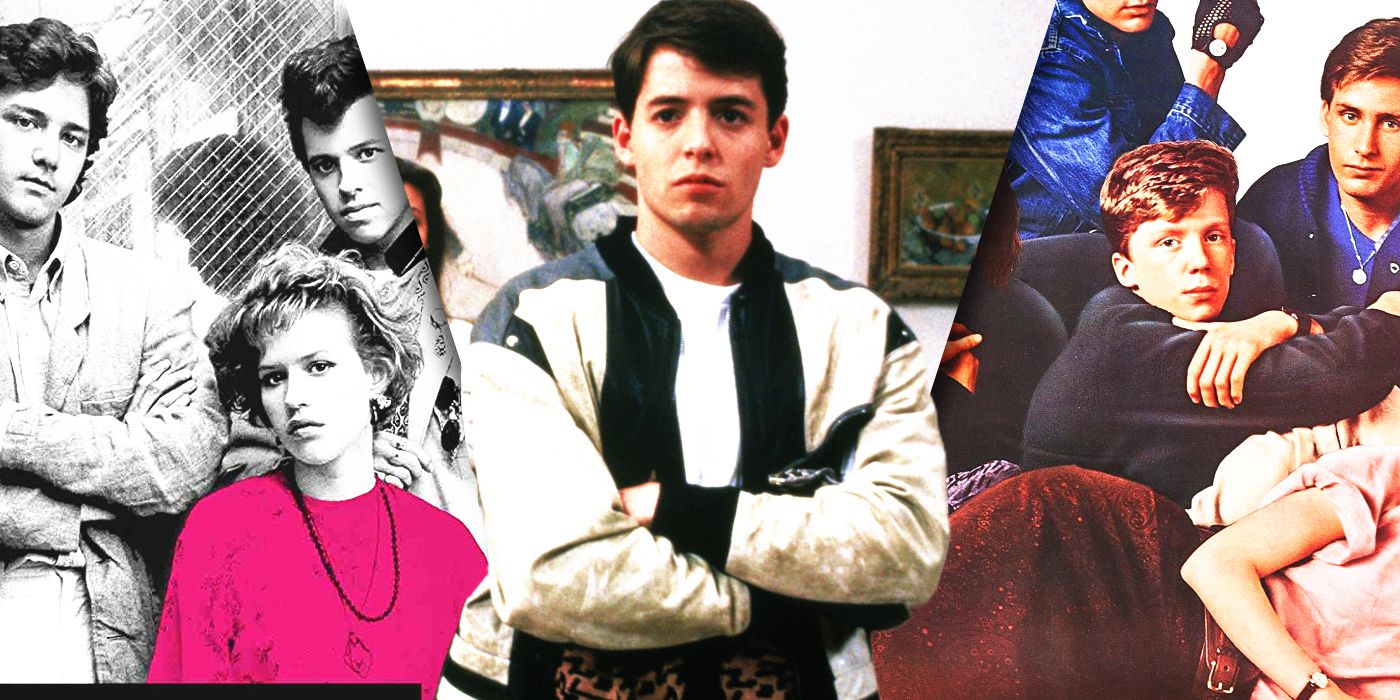
Related
5 Most Influential Movies Written By John Hughes
John Hughes has made many important, iconic movies, and these are the movies with the largest cultural impact.
Some of the things that John told me are that you’ve got to write about what you know. I remember him talking to me at times that he had two sisters growing up, one younger and one older. They didn’t really get along, and he often felt trapped in his own household, separate from his siblings. An example of John writing what he knows is that scene in The Breakfast Club with Paul Gleason and John Kapelos, when they’re going back-and-forth. When [Kapelos] says «When I was a kid, I wanted to be John Lennon,» that was John [Hughes].
John Hughes loved The Beatles and loved music; that’s what inspired him. That was him writing about what he knew. With all those music cues in his films, he created a new style of including and introducing music into film, so much to the point that Universal saw that and gave him a record label. He had Hughes Entertainment and Hughes Records back in the day at Universal.
Great creators, dads and moms will also show you by their actions. What I learned from him was the spirit of collaboration. He was always right there for you to talk about it. He would cut you loose. We would always shoot the scenes as written, and then he’d let us play around with it. What he did for me, he did for others — but to be fair, I think he loved me like a little brother and I loved him like a big brother. When I started working with John Hughes, I was 15 and he was 35. He walked the walk and that sense of staying loose, being open to change, having fun in the process… things that I sadly forgot at many junctures of my career after that.
I learned so much from how he handled that. I learned how to express your love for something, but adjourn from it when you’re doing the work. I learned more him without him saying anything than what I got from him. In my 49-year career, those are the things that I remind myself of and that I’ve had to remind myself of when I’ve gotten too serious, gone off track and screwed up. That’s always been a way to remind myself, to reflect and to get back to why I’m doing it in the first place. Before it was a career, I was just a goofy kid trying to have some fun. John, thank God, saw something in me that led to this career.
Reacher Season 3 streams Thursdays on Prime Video.
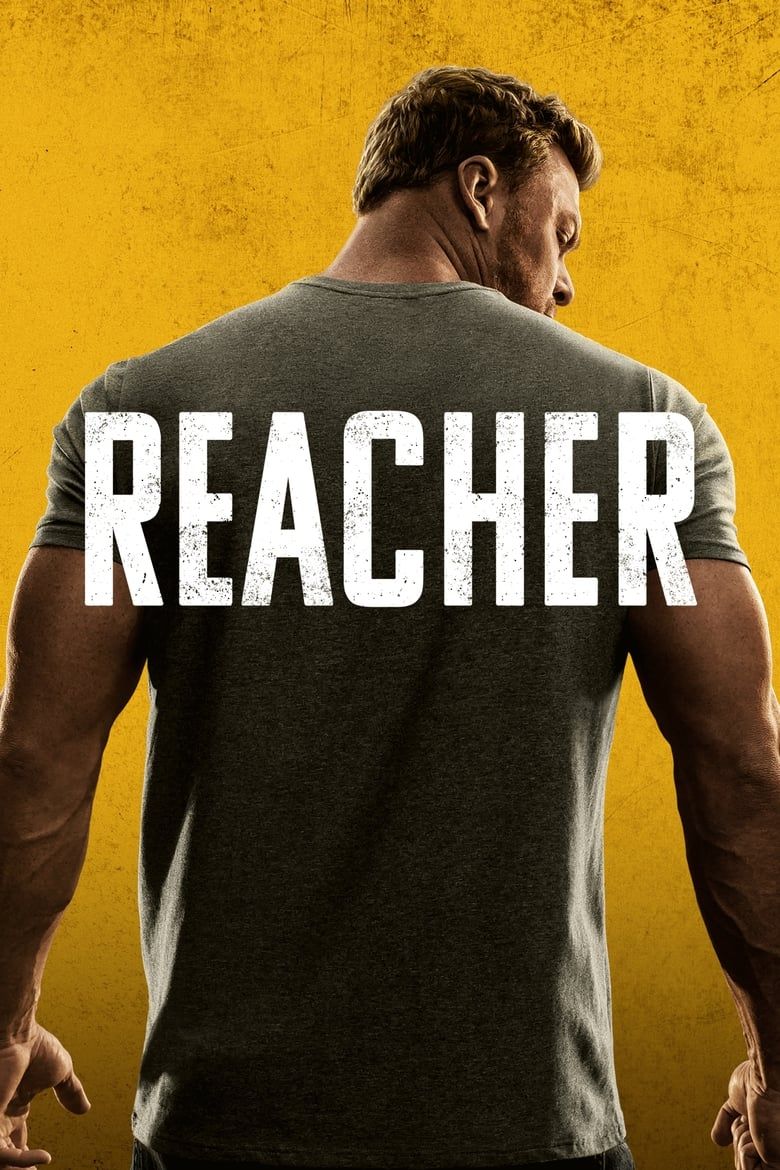
Reacher
- Release Date
-
February 3, 2022
- Network
-
Prime Video
- Showrunner
-
Nick Santora
- Directors
-
Omar Madha, Carol Banker, Julian Holmes, Lin Oeding, M.J. Bassett, Norberto Barba, Stephen Surjik, Thomas Vincent
- Writers
-
Cait Duffy
-
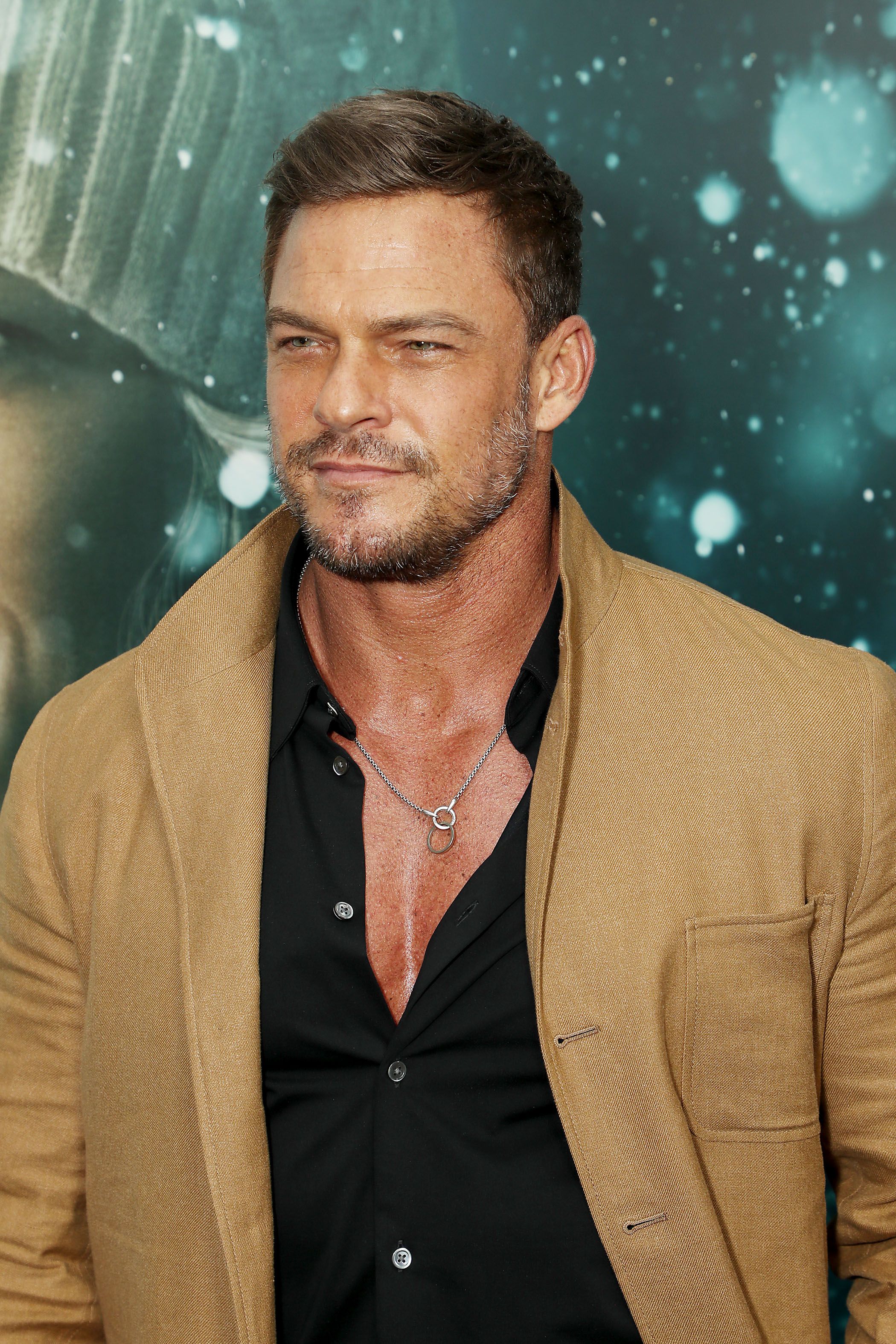
Alan Ritchson
Jack Reacher
-
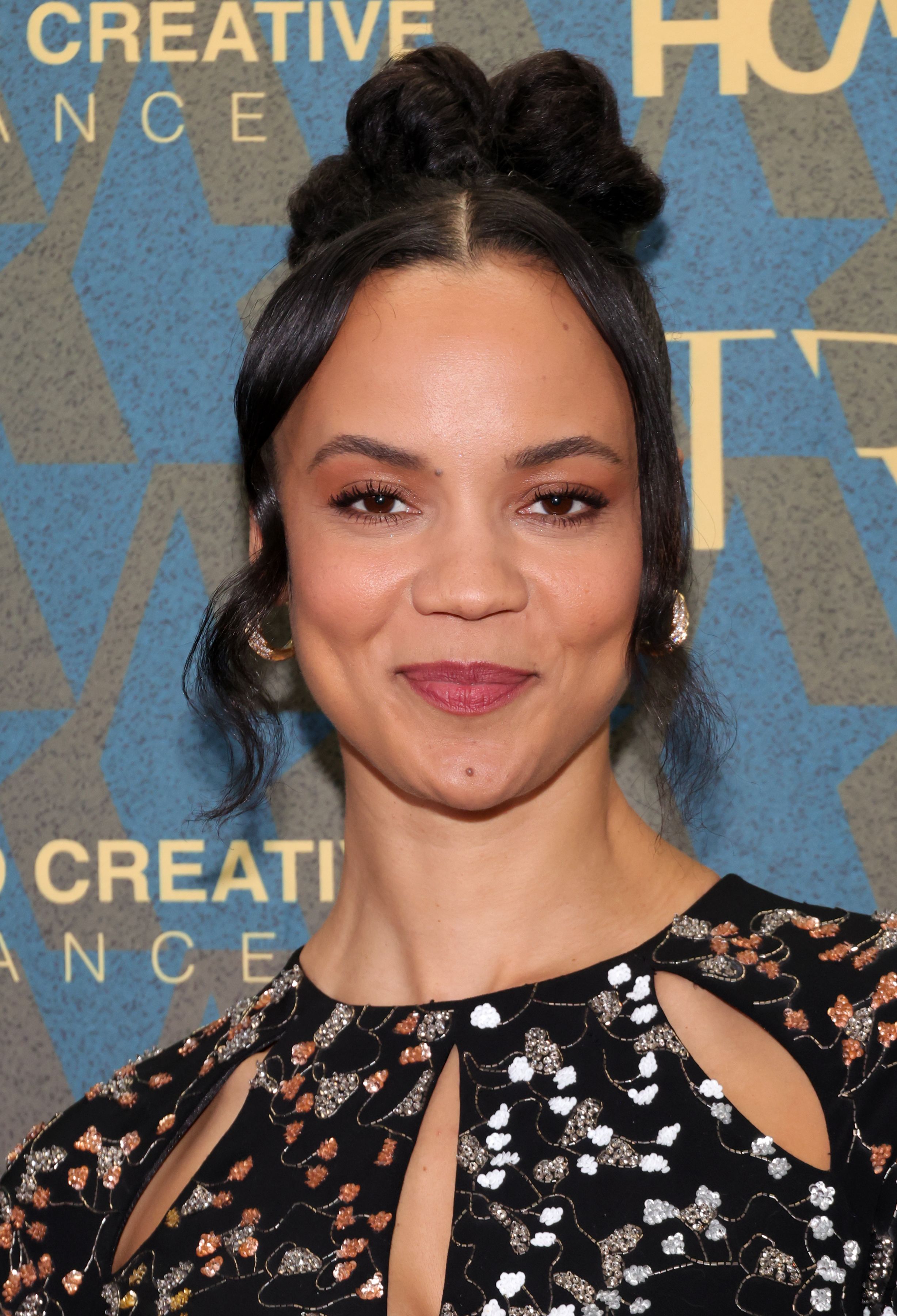
Maria Sten
Frances Neagley


